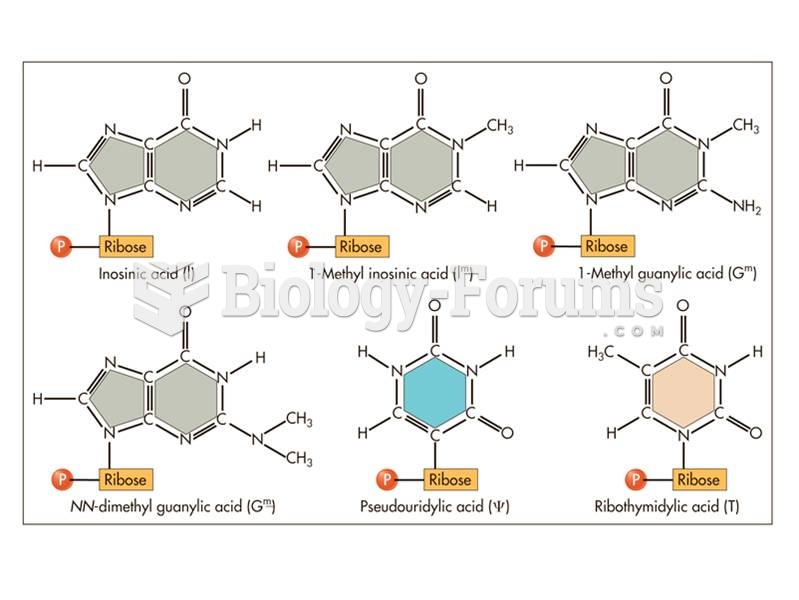|
|
|
Signs of depression include feeling sad most of the time for 2 weeks or longer; loss of interest in things normally enjoyed; lack of energy; sleep and appetite disturbances; weight changes; feelings of hopelessness, helplessness, or worthlessness; an inability to make decisions; and thoughts of death and suicide.
More than 150,000 Americans killed by cardiovascular disease are younger than the age of 65 years.
Cancer has been around as long as humankind, but only in the second half of the twentieth century did the number of cancer cases explode.
According to research, pregnant women tend to eat more if carrying a baby boy. Male fetuses may secrete a chemical that stimulates their mothers to step up her energy intake.
After 5 years of being diagnosed with rheumatoid arthritis, one every three patients will no longer be able to work.







